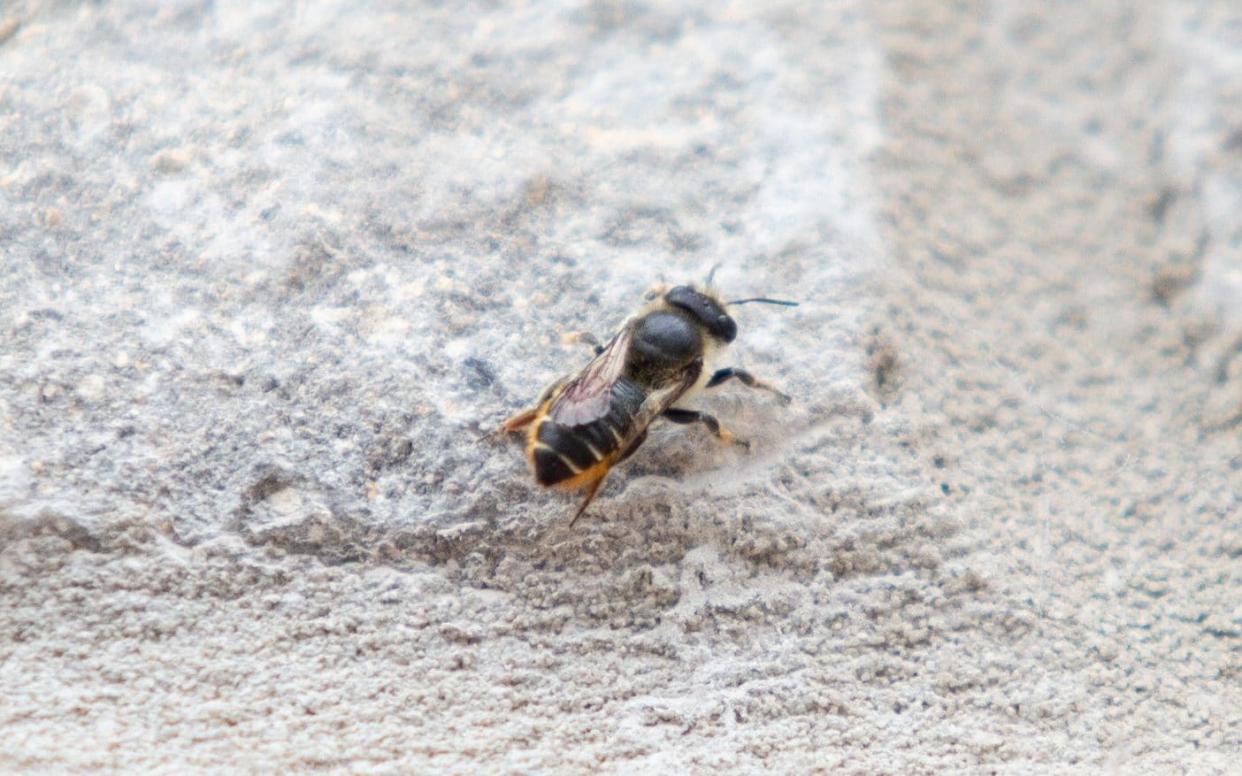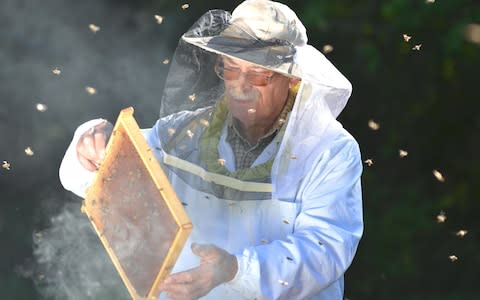Fugitive Turkish bee condemned to death by government sparks international row

For a solitary creature who prefers not to travel, accidentally ending up 2,000 miles from home was probably bad enough without provoking an international row.
That, however, has become the plight of the fugitive Turkish bee condemned to death by the UK Government.
A major Istanbul newspaper yesterday called for the insect’s life to be spared, after the Department for Environment, Food and Rural Affairs (Defra) ordered its destruction.
“Don’t kill the “Turkish bee””, ran a headline in Hurriyet, a popular daily, while a well-known Turkish literary figure also criticised the policy.
It came as the head of Turkey’s beekeepers union accused foreign tourists of removing wildlife.
Believed to be of the rare Osmia avosetta species, the bee captured public attention after taking up residence in and around the conservatory of a Bristol family recently returned from holiday.
Ashley and Louise Toy believe it snuck into one of their cases during their stay in Dalaman.
Despite the bee appearing to be happy spending its time constructing colourful sacks out of flower petals, Defra said the animal should be killed to protect native British species.
It has now disappeared.
Operatives from Defra’s Animal and Plant Health Agency (APHA) attended the house on Wednesday night to collect the sacks, just as the scientist who originally discovered the species begged officials to preserve them.
The Turkish media has picked up on the buzz around the Turkish bee. Hürriyet daily today reports on the Telegraph story with the headline, “Don’t kill the ‘Turkish bee’.” pic.twitter.com/RkuPeg1Qt7
— Raziye Akkoç (@RazAkkoc) July 31, 2019
Dr Jerome Rozen, from the American Museum of Natural History, said they “probably” contained fertilised eggs.
“They need to have their head examined if they’re going to destroy the brood chambers,” he told The Daily Telegraph. We need to have a proper look at them to get to the bottom of this.”
The saga is now being covered as far away as Nigeria.
A solitary species of Mason bee, Osmia avosetta is rare in constructing sacks out of petals and mud, stocking them with food and nectar, then sealing and burying them in the earth to allow the larvae to grow over winter.
Dr Rozen made zoological history when he discovered the bees 5,000 feet up a remote southern Turkish mountain in 2009.
He urged Defra officials to preserve the colourful brood chambers, if only to establish whether the bee is Osmia Avosetta or something else.
“If it has made a brood chamber then it’s likely it contains larvae,” he said.
“Normally you would expect a bee to emerge from it sometime next year.”
Defra said APHA had secured the brooding sacks and would take them to a laboratory before deciding what to do next.

The British Beekeepers Association has warned that the foreign bee could endanger already imperiled British species by spreading viruses or even multiplying and eventually out-competing them.
Ziya Sahin, President of the Union of Beekeepers in Turkey said: "Many animal lovers and nature lovers come.
“They are able to catch a variety of insects and bees and take them away in cages. They come here to do this very intentionally.”
However, there is no suggestion the Toys deliberately brought the bee into the UK.
Buket Uzuner, a Turkish novelist and environmental campaigner, also voiced her concern, tweeting satirically about the decision to exterminate a Turk entering Britain “without a visa and passport”.
Osmia avosetta was discovered virtually simultaneously in Turkey and Iran.
Their nests tend to be situated spaced out over fairly barren patches of earth.
Defra has warned holidaymakers to check their bags thoroughly before traveling home.
Since 2004, Britain has endured repeated invasions of highly aggressive Asian hornets, which kill native bees.

